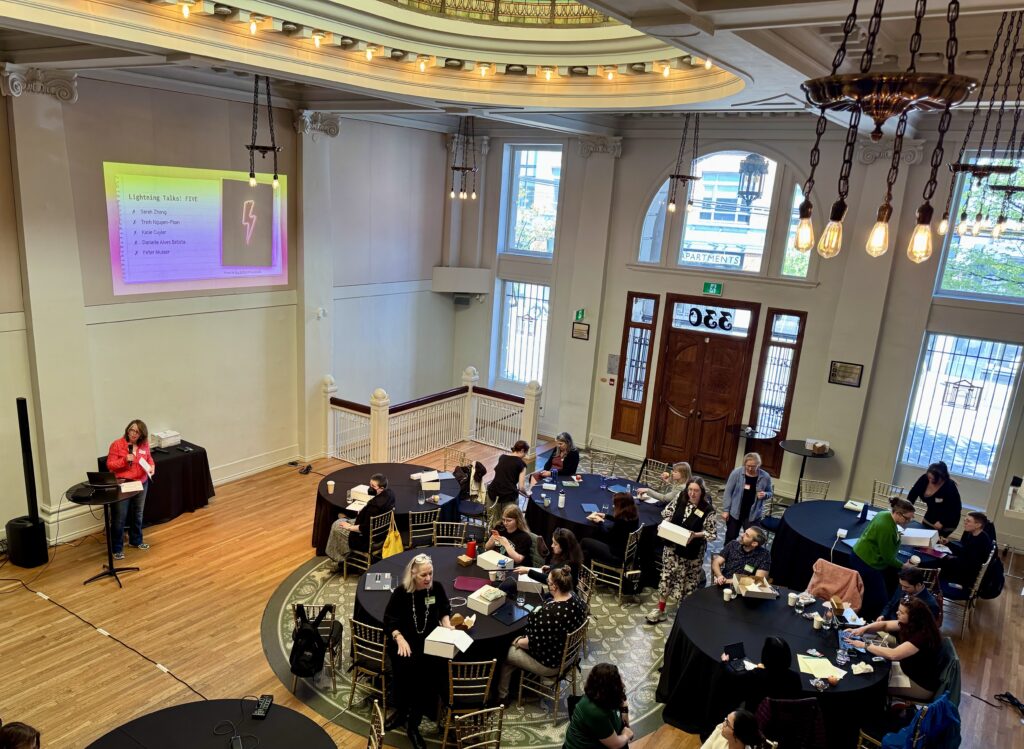
April 24–25, 2025 | Online + In-Person in Vancouver, BC
This spring, government information professionals, librarians, researchers, students, and digital preservationists gathered for GovInfo Day(s) Spring 2025, a two-day hybrid conference focused on the vital theme of long-term and persistent access to government information. Hosted virtually on April 24 and in-person at Internet Archive Canada HQ in Vancouver on April 25, the event explored both the opportunities and ongoing challenges of preserving and enhancing access to government documents, records, publications, and datasets across Canada and beyond.
Day 1 Highlights – Online
Building Digital Futures for Government Archives
- David J. Nordlander opened with insights into the Arctic Digital Library, a collaborative digital preservation effort involving circumpolar collections from U.S., Russian, and Canadian institutions. His presentation emphasized the need for cross-border cooperation to safeguard endangered regional knowledge.
- Bert Chapman explored the Canadian Security Intelligence Service’s (CSIS) public resources, underscoring the value of transparency in an age of geopolitical uncertainty and digital threats.
Lightning Talks: Snapshots of Progress and Innovation
Five rapid-fire presentations covered crucial topics, including:
- Canadian Census Data Discovery Project – Aiming to unify historical and contemporary census data into a bilingual, open-access portal.
- Local Government Document Digitization – Through the California Local Government Documents project, presenters advocated for preserving hyper-local records often overlooked in broader national preservation efforts.
- Stable Print Repositories in Canada – The North/Nord initiative seeks to identify and support libraries committed to preserving federal government print collections.
- APLIC GALLOP Portal Migration – Updates on the revamped discovery platform for Canadian parliamentary publications.
- Web3 and Decentralized Storage – Filecoin Foundation and Smart City USA proposed blockchain solutions to protect ephemeral public datasets from political or institutional changes.
Grassroots Preservation & Emerging Technologies
- A panel of experts from PEGI, the End of Term Archive, and the Data Rescue Project shared their decade-plus efforts to preserve vulnerable digital government information, especially during political transitions.
- Generative AI in Libraries – A team from OCUL/Scholars Portal presented their project applying GenAI and OCR to improve metadata quality for tens of thousands of digitized Canadian government documents.
Day 2 Highlights – In-Person in Vancouver
Democracy’s Library & Canadian Preservation Contexts
- The day began with an update from Internet Archive founder Brewster Kahle on the work being spearheaded by Internet Archive Europe on innovative ways to display digital data, while Andrea Mills discussed both the global Democracy’s Library initiative and Democracy’s Library Canada, emphasizing universal access to government documents.
- Carla Graebner examined the Canadian landscape for preserving government records, noting structural barriers and emerging efforts like the CGI-DPN.
Digital Literacy, Disinformation, and Trust
- Jim Hoggan, author of I’m Right and You’re an Idiot, delivered a compelling online session on countering disinformation and toxic public discourse, sharing practical tools for fostering productive dialogue and public trust.
Lightning Talks: Practical Projects and New Frontiers
The afternoon showcased another set of lightning talks, including:
- SFU’s Map Inventory Project – A look at unlocking the research potential of historical print maps.
- Blockchain and Government – Two presentations examined the role of blockchain in public procurement and the mining sector, both addressing transparency and accountability.
- Digitizing British Parliamentary Papers – The University of Alberta’s work on a rare, comprehensive collection adds a valuable piece to Canada’s digital research infrastructure.
- Preserving OER Resources – ISKME’s Peter Musser detailed urgent efforts to protect openly licensed educational content vulnerable to digital erasure.
Legal and Policy Innovation
- Matt Malone closed the day with a critique of Canada’s open government framework and a spotlight on OpenByDefault.ca, a civil society-led solution addressing federal transparency gaps.
A Unifying Message
Across two days of rich dialogue, the message was clear: persistent access to government information is foundational to democratic accountability, historical memory, and civic empowerment. Whether through AI, blockchain, or grassroots digital archiving, the GovInfo Day(s) community reaffirmed their shared commitment to ensuring government information remains available — not just today, but for generations to come.
If you were unable to attend, please note that recordings and slides will be available shortly on the GovInfo Spring site: https://osf.io/mghjk/
We look forward to having you join us next year to celebrate the 25th anniversary of GovInfo Day!
